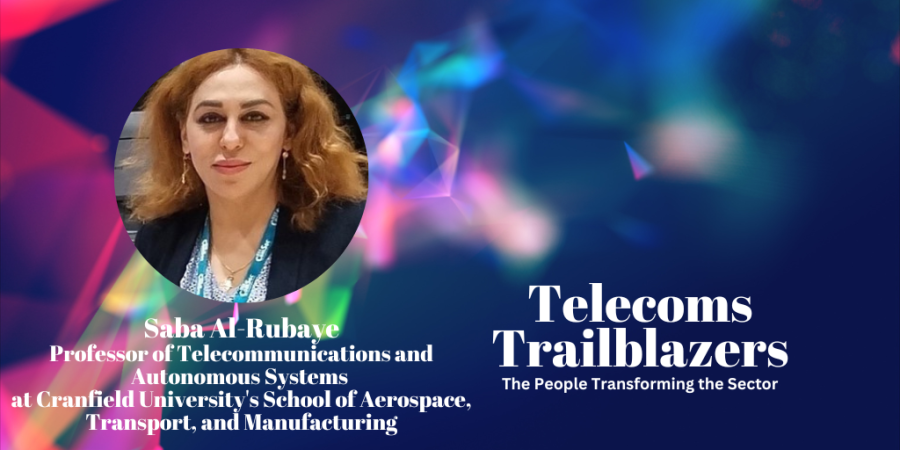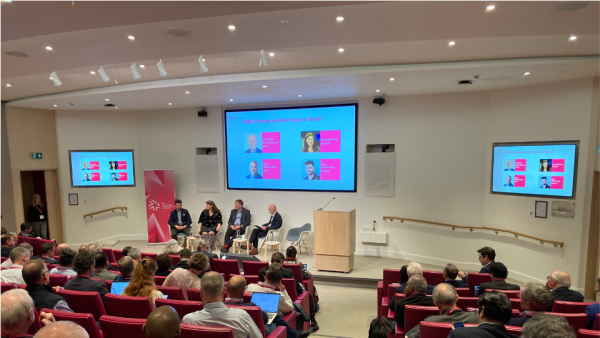
Hello, I'm Saba Al-Rubaye, a Professor of Telecommunications and Autonomous Systems at Cranfield University's School of Aerospace, Transport, and Manufacturing. I also lead research and development at the Digital Aviation Research and Technology Centre, focusing on advancing 6G technology, digital twin and air mobility solutions. I am a member of UKTIN’s Non-Terrestrial Networking Expert Working Group.
I've spearheaded several projects in air mobility communication aimed at enabling drones for Beyond Visual Line of Sight operations. These include Project Rise, which developed and demonstrated a scalable flight management system; and the Unmanned Aircraft Systems Authentication System, which focused on implementing drone safety across use cases including medical emergencies and supply delivery.
I am actively involved in CHEDDAR, a 6G Communications Hub for Empowering Distributed Cloud Computing Applications and Research projects: the hub aims to foster advancements in communication systems, bridging connections across academia, business, and the global community. Along with support from DSIT, it is funded by the Engineering and Physical Sciences Research Council and UK Research and Innovation.
Staying up-to-date with the new developments in telecoms and air mobility is a key part of my work. Typically, I start my day enjoying a cup of coffee - and trying to clear my mind - before I spend a few hours refining my knowledge and understanding by reading the latest news and articles. I may be an academic, but my work aims to solve real-world problems, improving reliability, operational safety and services in telecoms and air mobility.
What do you enjoy most about working in this space?
Working in telecoms and digital aviation allows me to be at the forefront of technological advancement. The pace of change and the opportunity to shape how we connect and communicate in the future are incredibly rewarding.
What’s the most ridiculous thing you’ve done in the name of work?
Innovation often demands thinking outside the box. One particularly memorable experience was testing a prototype drone delivery system with Skyports, our industrial partner, in challenging weather conditions to evaluate its reliability. It was an adventurous endeavour that truly pushed the boundaries of what we could achieve!
What excites you most about working in telecoms?
I am passionate about revolutionising global interactions for both people and businesses. Whether pioneering new communication technologies or enhancing connectivity in remote areas, telecoms holds the potential to impact societies and economies significantly. This dynamic environment continually challenges me to innovate and drive advancements that shape the future of communication.
What would you like people to know about your work?
At Cranfield University, telecoms are a critical technology pivotal to our research strategy. We aim to develop interventions that benefit the UK and empower companies within the sector. Our work isn't just about advancing technology; it's about fostering innovation that directly impacts businesses, society, and the economy. We strive to create solutions that are not only effective but also sustainable, ensuring that the UK remains at the forefront of global telecommunications innovation.
Why is a vibrant, flourishing telecoms ecosystem important for the UK?
A robust telecoms ecosystem is crucial for economic competitiveness, innovation leadership, and societal development. As we transition towards 6G digital infrastructure, early adoption and innovation are crucial. By investing in a resilient and reliable telecoms network, the UK will enhance economic growth and job creation, and ensure national infrastructure and readiness for future technological advancements. Staying ahead in the 6G roadmap will secure our position as a leader in telecommunications innovation, shaping the digital future for decades to come.









